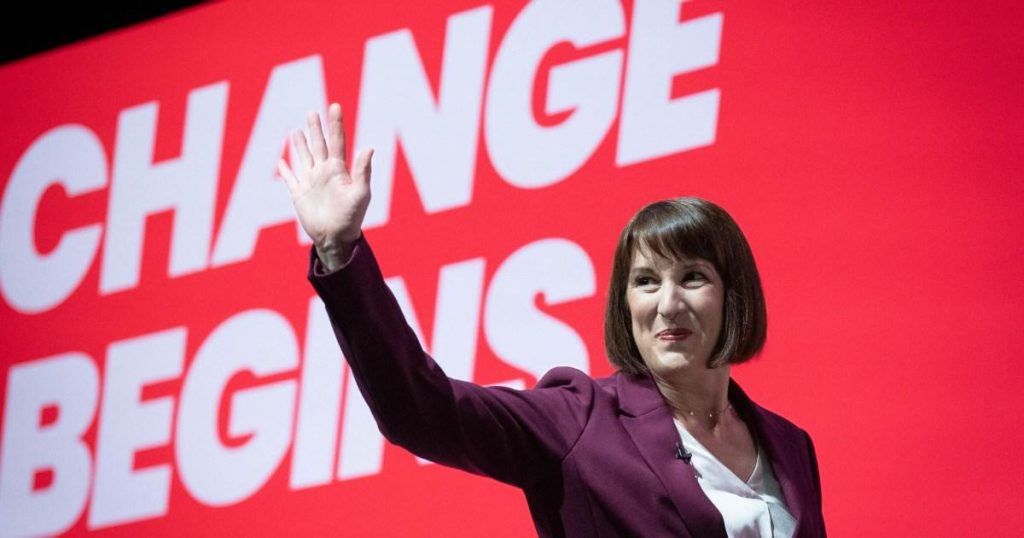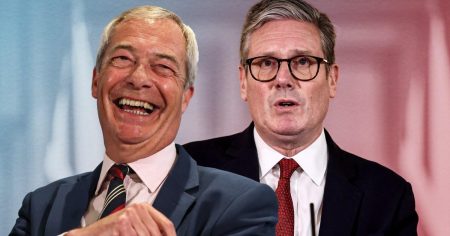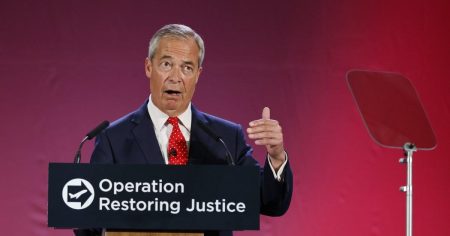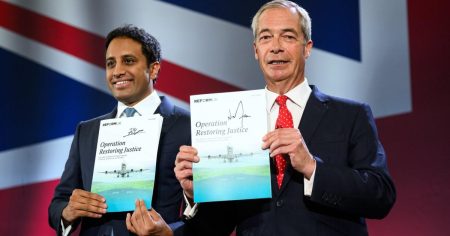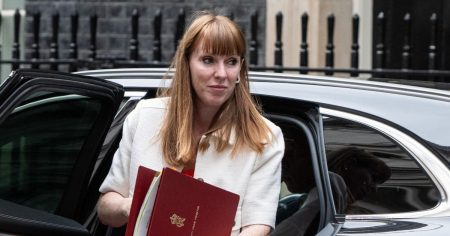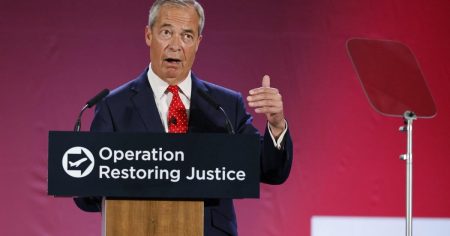Rachel Reeves, the UK’s first female Chancellor of the Exchequer, has faced a turbulent start to 2025, grappling with economic instability and criticism surrounding her recent trip to China. Appointed after Labour’s general election victory in July 2024, Reeves, who previously served as Shadow Chancellor under Keir Starmer, inherited a challenging economic landscape. Her first budget, which included £40 billion in tax increases aimed at preventing a return to austerity, has been met with mixed reactions. Some critics argue that these measures have undermined business confidence, contributing to a rise in government borrowing costs and a decline in the value of the pound. While Reeves secured a £600 million investment from China during her trip to Beijing, opposition parties have questioned her decision to travel abroad amidst domestic economic concerns, arguing her focus should have been on stabilizing the UK market.
Reeves’ background offers insights into her political trajectory. Born in 1979 to primary school teachers, she attended state schools and developed an early interest in economics and politics, joining the Labour Party at 17. Her academic prowess led her to Oxford University, where she studied Philosophy, Politics, and Economics, followed by a master’s degree from the London School of Economics. Before entering politics, Reeves gained valuable experience in finance, participating in the Bank of England’s graduate scheme, which included a stint analyzing the US economy at the British Embassy in Washington. Her subsequent employment at HBOS during the 2008 financial crisis provided firsthand exposure to the complexities of the banking sector and the far-reaching consequences of economic instability.
Reeves’ political career began in 2010 when she was elected as the Member of Parliament for Leeds West at the age of 31. Her rapid ascent within the Labour Party was marked by her appointment as Shadow Chief Secretary to the Treasury just 18 months after entering Parliament. She later served as Shadow Work and Pensions Secretary under Ed Miliband. During Jeremy Corbyn’s leadership, Reeves remained on the backbenches but chaired the Business and Trade Select Committee, a role that further solidified her expertise in economic matters. Upon Keir Starmer’s election as Labour leader, Reeves returned to the shadow cabinet, eventually taking on the crucial role of Shadow Chancellor in May 2021. In this position, she focused on rebuilding relationships with the business community and critiquing the Conservative government’s economic policies, including Liz Truss’s controversial mini-budget.
Interestingly, Rachel Reeves’ political journey is intertwined with her family’s. Her younger sister, Ellie Reeves, is also a Labour MP, representing Lewisham West and Penge. Both sisters joined the Labour Party and attended Oxford University, demonstrating a shared commitment to public service and a similar educational background. Ellie Reeves, who is married to Labour peer Lord Cryer, has held various shadow ministerial positions and currently serves as the chair of the Labour Party. This familial connection underscores the Reeves sisters’ deep involvement in the political landscape.
On a personal level, Rachel Reeves is married to Nicholas Joicey, a senior civil servant with a long and distinguished career in government. Joicey currently serves as the Second Permanent Secretary at the Department for Environment, Food and Rural Affairs, a position that reflects his extensive experience and expertise in public administration. The couple has two children, a daughter named Anna and a son named Harold, balancing the demands of high-profile careers with family life. This aspect of Reeves’ life provides a glimpse into her personal world beyond the realm of politics.
Finally, it’s worth addressing a recurring narrative in media portrayals of Rachel Reeves: her supposed chess championship during her school years. While often cited, this claim is not entirely accurate. Although Reeves participated in various chess tournaments as a child, including the British Under 14s Championship in 1993, she did not win any major titles. This clarification highlights the importance of accurate reporting and the potential for misconceptions to persist in public discourse. Reeves’ true accomplishment lies not in chess championships, but in her dedication to public service and her current position as Chancellor, navigating the complexities of the UK economy.





